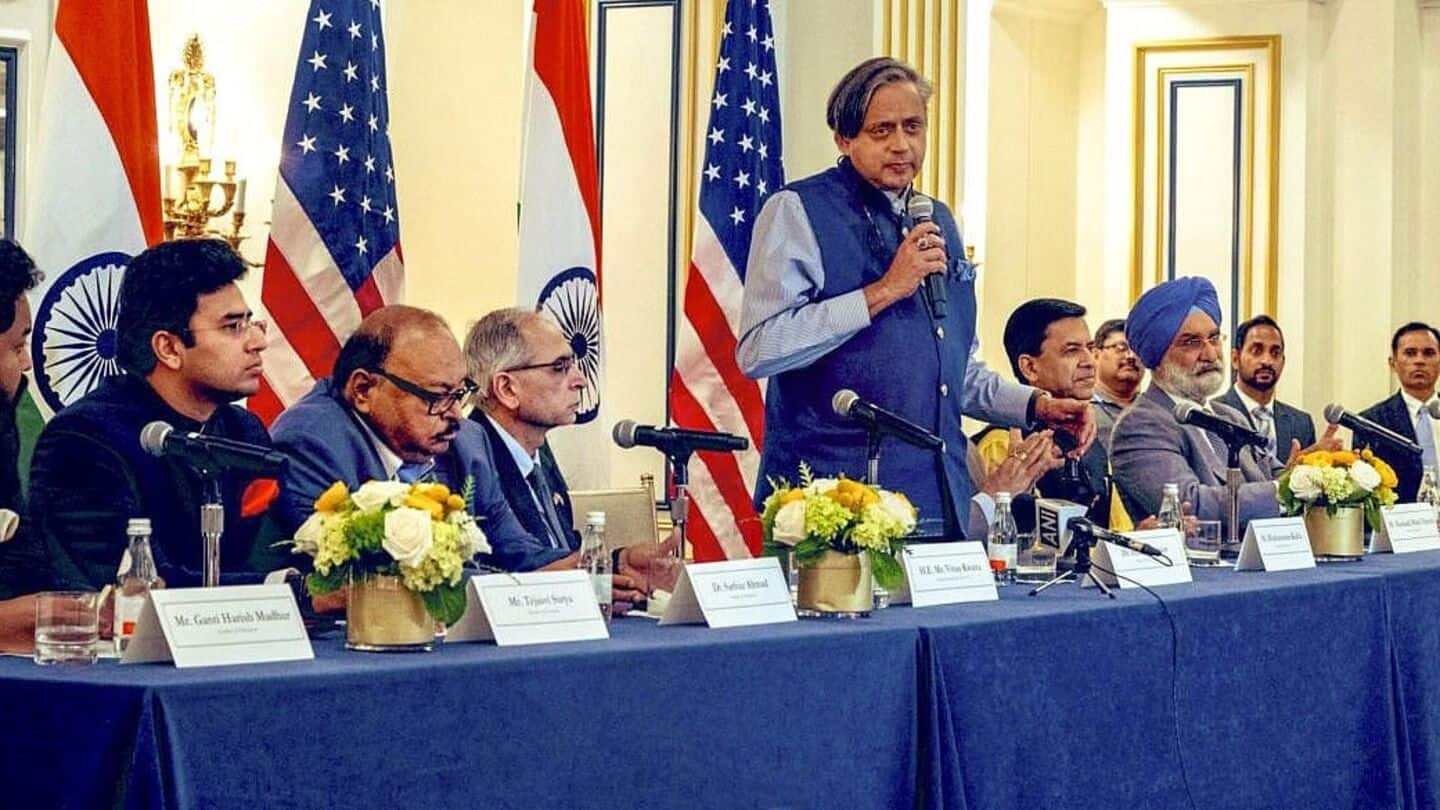
'Surprising': Tharoor slams diaspora over silence on India-US setbacks
What's the story
Congress MP Shashi Tharoor has expressed disappointment over the Indian-American community's silence on recent tensions in India-US relations. Speaking to reporters after welcoming a five-member US Congressional delegation in Delhi, Tharoor said he was surprised by the lack of communication from the diaspora. "One of the congresswomen said that not one phone call has come to her office from any Indian-American voter asking for her to support a change of policy," he said.
Advocacy call
Tharoor urges Indian-Americans to speak up
Tharoor said, "If you care about the relationship with your motherland, then you also have to fight for it, speak for it, and make more of an effort to press your political representatives to stand up for India." The meeting took place amid recent setbacks in bilateral relations, including the US's one-time $100,000 fee on new H-1B visa applications, increased tariffs on Indian exports like garments and gems, and sanctions impacting India's Chabahar Port development in Iran.
Positive outlook
US lawmakers express support for India-US strategic partnership
The US lawmakers, all Democrats and led by Indian-origin Congressman Ami Bera, showed "tremendous interest in India," the Congress MP added. They reiterated support for the India-US strategic partnership. "I think the most important message that came out from them was that a lot of American opinion, including in the US Congress, is very strongly committed to the Indian relationship, the strategic partnership, that India is valued and that they remain determined to strengthen that relationship," he told ANI.
Commitment emphasized
New visa policy
On Tuesday, the Trump administration proposed a new and more stringent H-1B visa selection process, a weighted one that favors high-skilled and better-paid workers, as opposed to the current randomized lottery scheme. Under the proposed system, workers assigned to the highest wage level would have four entries in the selection pool. In contrast, those at the lowest tier would only have one entry. This change could significantly alter how global talent is attracted to and flows into the US economy.